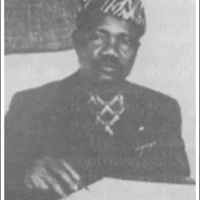When President Theodore Roosevelt signed the Hay-Bunau-Varilla Treaty with Panama in 1903, the United States gained sovereignty over the portion of the newly formed country of Panama which would become the Panama Canal, a modern-day marvel that revolutionized international shipping and solidified America as a global power. While the benefits to the U.S. were enormous, the politics… Read More "The Panama Riots of 1964: The Beginning of the End for the Canal"
Should I Stay or Should I Go? Evacuating Liberia, 1990
Being caught up in violent political upheaval and forced to evacuate is among the risks of diplomatic service, as at the U.S. Embassy in Monrovia in 1990 in what the Marines called Operation Sharp Edge. The problems started a decade before when a group led by Master Sergeant Samuel Doe staged a military coup in Liberia, toppling the… Read More "Should I Stay or Should I Go? Evacuating Liberia, 1990"
Politics, Pinatubo and the Pentagon: The Closure of Subic Bay
The closure of Naval Base Subic Bay, the U.S. Navy’s massive ship-repair, supply, and rest and recreation facility in the Philippines, was prompted by both political and geological unrest. Once the second largest U.S. overseas military installation in the world, it was acquired by the U.S. in the 1898 Treaty Of Paris and because of its strategic… Read More "Politics, Pinatubo and the Pentagon: The Closure of Subic Bay"
Roaring through the Riots of Libreville
Omar Bongo Ondimba of Gabon, one the longest-serving rulers in history, opened his newly-independent country’s political system to multiple party participation in the wake of destructive riots in May 1990. As a young man, he held key positions in the government of first President Léon M’ba, was elected Vice President in 1966 and became Gabon’s… Read More "Roaring through the Riots of Libreville"
Beijing Spring and the Lead-up to Tiananmen Square
The iconic image of the Tiananmen Square demonstrations and brutal government crackdown on the peaceful demonstrators is that of the “Tank Man,” the unarmed citizen who, carrying nothing but shopping bags, peacefully blocked the path of tanks sent by the Chinese government to assert control in the days after the crackdown. While the image may lead… Read More "Beijing Spring and the Lead-up to Tiananmen Square"
Throughout the 1970s, trouble was brewing in Chad. President François (N’Garta) Tombalbaye was the first president of Chad following its independence from France in 1960. His authoritarian regime became increasingly distrustful of and alienated from Chad’s military and Tombalbaye had jailed several prominent commanders. An insurgency in the north led by the Libyan-armed FROLINAT [National… Read More "A Front Row Seat to the 1975 Coup d’Etat in Chad"
The Saur Revolution: Prelude to the Soviet Invasion of Afghanistan
The government of Afghan President Mohammed Daoud Khan came to a violent end in what was called the Saur Revolution when insurgent troops led by the People’s Democratic Party of Afghanistan [PDPA] stormed his Kabul palace on April 27, 1978. Daoud had taken power five years before by overthrowing and exiling his cousin, King Zahir… Read More "The Saur Revolution: Prelude to the Soviet Invasion of Afghanistan"
“Years of Lead” — Domestic Terrorism and Italy’s Red Brigades
Beginning in 1970 and spanning over a decade, the “Brigate Rosse” (Red Brigades) and other smaller groups incited a wave of fear across Italy as political sabotage, kidnappings, and murders shook many metropolitan centers in what was later called “The Years of Lead.” Boasting up to a thousand members in their heyday, the Red Brigades… Read More "“Years of Lead” — Domestic Terrorism and Italy’s Red Brigades"
Combining Forces to Counter Terrorism — The Birth of S/CT
U.S. inter-agency coordination on countering terrorism was limited, for bureaucratic and technical reasons, prior to the mid-1980s. As hijackings and terrorist assaults against U.S. military personnel became more frequent after the Vietnam War, Washington responded in part by creating the position of Coordinator for Counterterrorism in the State Department (S/CT). However, the position was not given… Read More "Combining Forces to Counter Terrorism — The Birth of S/CT"
World Wide Wangs—When the State Department Met the Internet
One of the monumental technological advancements of the past century was the creation of the Internet. Commonly referred to as “the Third Industrial Revolution,” the advent of digital technology has changed life – both personal and professional – as we know it. Today the World Wide Web has made everything from shopping for groceries to communicating… Read More "World Wide Wangs—When the State Department Met the Internet"

